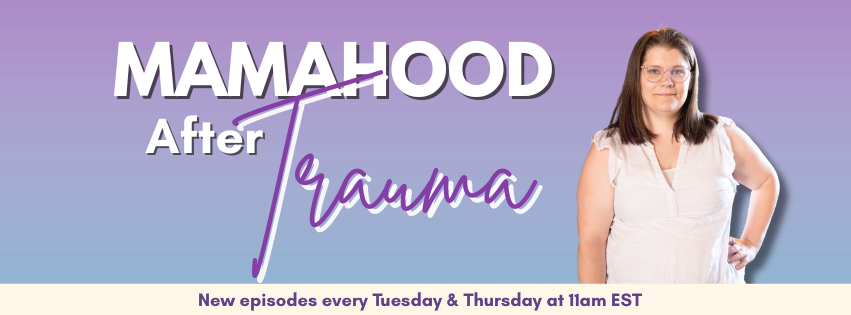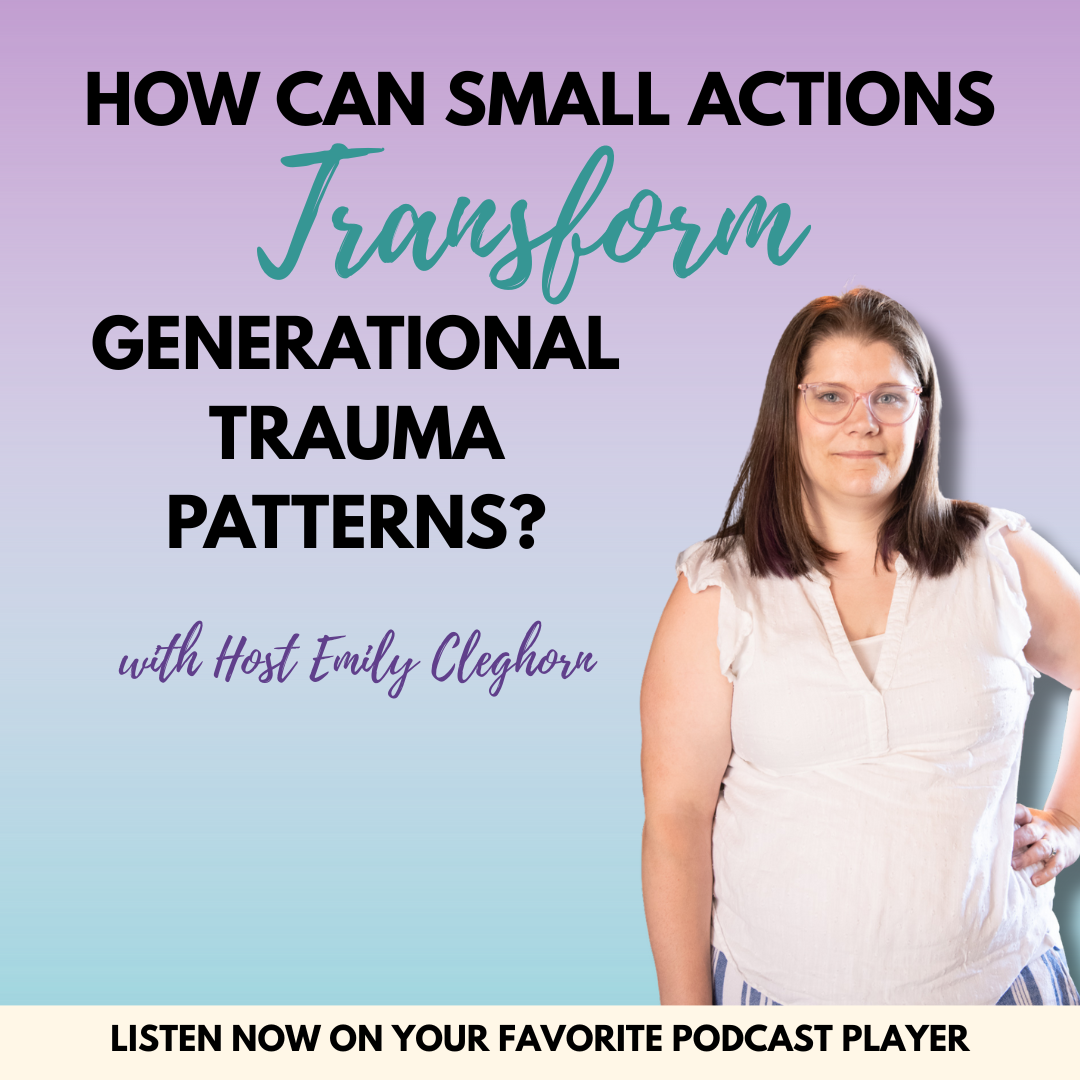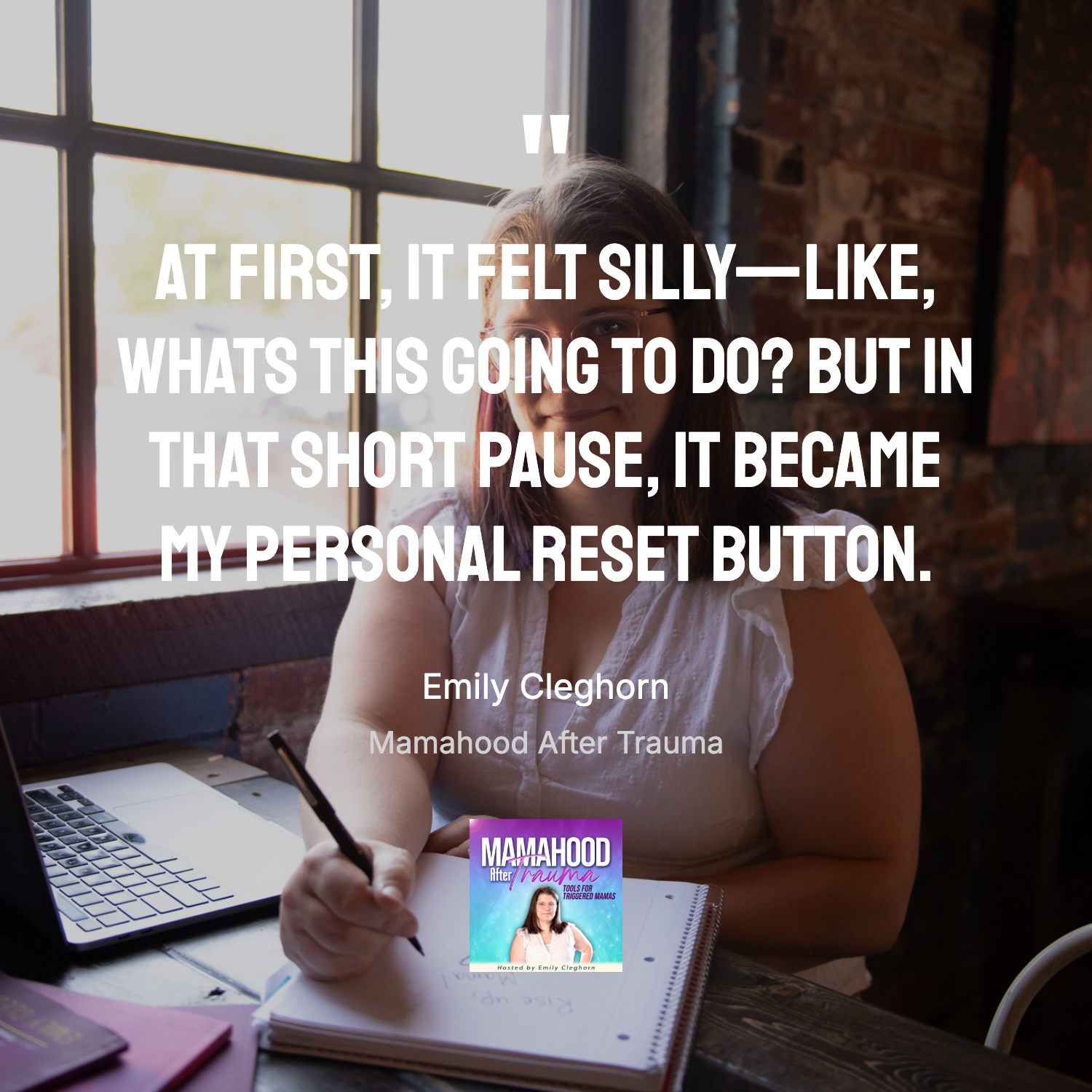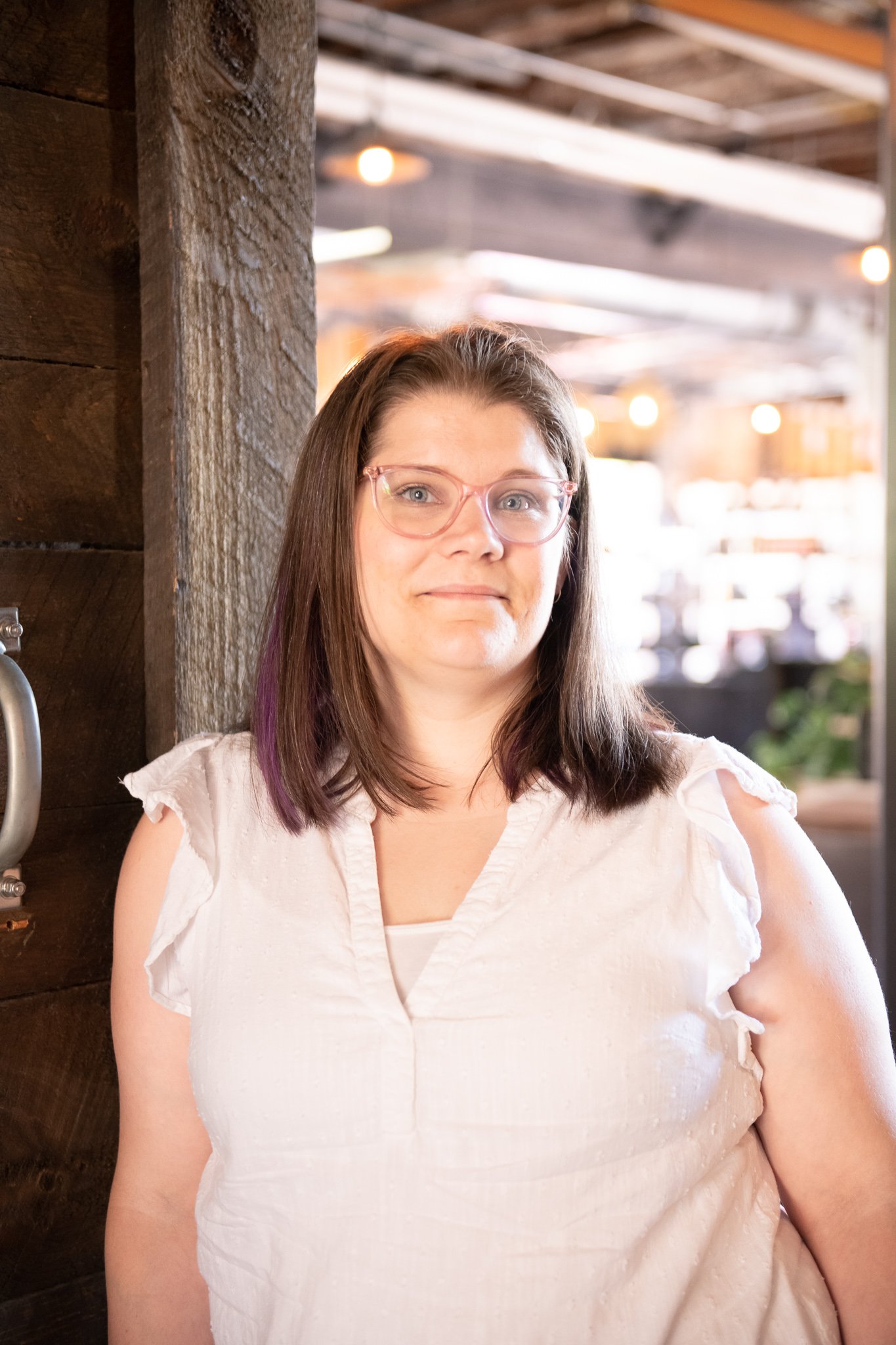
How Can Small Actions Transform Generational Trauma Patterns
In this episode of Mamahood After Trauma, host Emily discusses the power of taking small, intentional steps to break generational trauma patterns.
She shares her own journey, starting with simple practices like pausing before responding to her children, and emphasizes that healing is a gradual process built on consistency, not perfection.
Emily encourages listeners to embrace micro actions and offers her "Beyond the Trigger" program for further support.
The episode provides practical strategies and inspiration for parents seeking to heal, grow, and parent more peacefully and intentionally.

Table of Contents
Introduction and Resource Reminder (00:00:00) Emily welcomes listeners, introduces the podcast, and reminds them to download the free "Unlocking Peace" guide.
The Power of Tiny Actions (00:01:03) Emily discusses starting change with small steps, sharing her experience of pausing before responding to her kids.
Micro Actions and Consistency (00:02:08) Emphasizes the importance of micro actions, consistency over intensity, and making gradual, intentional changes.
Beyond the Trigger Program Invitation (00:05:08) Emily introduces her "Beyond the Trigger" program for support and community in breaking trauma patterns.
Episode Wrap-Up and Encouragement (00:06:10) Emily closes the episode, encourages listeners, and reminds them they are not alone on their healing journey.
Breaking Generational Trauma: The Power of Small, Intentional Actions in Motherhood
Welcome to the "Mamahood After Trauma" community! In this episode, host Emily dives deep into a transformative theme: how small, intentional actions can break generational trauma patterns and foster healing for both you and your children. If you’ve ever felt overwhelmed by the weight of your past or unsure where to start, this post will guide you through actionable steps, expert insights, and practical strategies to help you parent with more peace and empowerment.
Why Small Steps Matter in Healing Trauma
Generational trauma is often deeply rooted, passed down through behaviors, beliefs, and emotional responses. The idea of breaking these patterns can feel daunting—like climbing a mountain with no clear path. Emily’s message is clear: healing doesn’t require giant leaps, but rather consistent, micro actions that add up over time.
The Science Behind Micro Actions
- Neuroplasticity: Our brains are capable of change, but new neural pathways are built through repetition, not intensity. Small, repeated actions are more effective than sporadic, intense efforts.
- Emotional Regulation: Tiny pauses and mindful moments help rewire our stress responses, making it easier to respond rather than react.
Actionable Tips to Break Generational Trauma Patterns
1. Start with a Simple Pause
Emily’s first step: Pausing before responding to her children.
Why It Works:
- Interrupts automatic reactions rooted in past trauma.
- Creates a moment to check in with your emotions.
- Allows you to choose a response aligned with your values, not your triggers.
How to Practice:
- When you feel triggered, count to three before speaking or acting.
- Use the pause to take a deep breath and notice what you’re feeling.
- If needed, say out loud: “I need a moment,” modeling healthy emotional boundaries for your children.
Pro Tip:
- Practice in low-stress moments first, so it becomes second nature when you’re under pressure.
2. Label and Soothe Your Emotions
Emily emphasizes: Noticing, labeling, and soothing your emotions in the moment.
Why It Works:
- Naming emotions reduces their intensity and helps you gain perspective.
- Self-soothing techniques prevent escalation and model emotional intelligence for your kids.
How to Practice:
- When you notice a strong emotion, name it: “I’m feeling frustrated right now.”
- Validate your experience: “It’s okay to feel this way.”
- Use a soothing strategy: deep breathing, stepping outside, or a calming mantra (“I am safe, I am calm”).
Pro Tip:
- Keep a list of quick self-soothing tools on your phone or fridge for easy access.
3. Focus on Consistency, Not Perfection
Key insight: Consistency beats intensity every time.
Why It Works:
- Small, repeatable actions create lasting change.
- Perfectionism can lead to burnout and self-criticism, which undermines healing.
How to Practice:
- Set a realistic goal: “Today, I’ll pause once before reacting.”
- Track your progress in a journal or app—celebrate small wins!
- When you slip up, offer yourself compassion and try again.
Pro Tip:
- Aim for 1% improvement each day. Over time, these small gains compound into significant transformation.
4. Join a Supportive Community
Emily’s recommendation: Find guidance and community support, like her “Beyond the Trigger” program.
Why It Works:
- Community reduces isolation and provides accountability.
- Learning from others’ experiences accelerates your own growth.
- Expert guidance offers structure and proven strategies.
How to Practice:
- Seek out support groups (online or in-person) for trauma-informed parenting.
- Consider joining programs like Beyond the Trigger for step-by-step guidance.
- Share your journey with trusted friends or a therapist.
Pro Tip:
- Engage regularly—even a weekly check-in can make a big difference in your motivation and resilience.

Expert Advice: Embrace Imperfection and Self-Compassion
Emily’s core message is one of kindness and understanding—toward yourself and your children. Healing is not linear, and setbacks are part of the process. The goal isn’t to become a “perfect” parent, but to show up differently, one moment at a time.
Action Steps:
- Forgive yourself for past mistakes.
- Celebrate progress, no matter how small.
- Model self-compassion for your children—they learn as much from how you treat yourself as how you treat them.
Resources to Support Your Journey
- Unlocking Peace Guide: Emily’s free resource to help you create calm and manage triggers.
- Beyond the Trigger Program: A supportive community and step-by-step guidance for interrupting old patterns and parenting with peace.
- Therapy and Counseling: Consider working with a trauma-informed therapist for personalized support.
Final Thoughts: You’re Not Alone
Breaking generational trauma is a courageous journey, but you don’t have to do it alone. By taking small, intentional steps—pausing, labeling emotions, focusing on consistency, and seeking support—you’re already changing the future for yourself and your children.
Remember:
- Healing happens one moment at a time.
- Your micro actions matter.
- We’re in this together—mending the past so you can mama in peace.
If this post resonated with you, download the Unlocking Peace Guide and consider joining the Beyond the Trigger program for deeper support.
You are not alone. Every small step you take is a victory.
About Emily Cleghorn

Emily Cleghorn is an award-winning Holistic Trigger Recovery Coach, bestselling author, podcaster, and sought-after speaker on a mission to help trauma-surviving mamas heal while parenting. Through her signature Mended Mama Method, Emily empowers moms to navigate triggers and tantrums with confidence, breaking free from reactive patterns and creating a peaceful, connected home.
Driven by her passion for creating positive generational change, Emily shares her powerful story of overcoming the grip of childhood trauma to inspire others that healing is possible — even in the chaos of motherhood. Her work has touched countless lives, giving mamas the tools and hope to reclaim their peace and raise emotionally healthy kids.
Want to be a guest on Mamahood After Trauma? Send Emily Cleghorn a message on PodMatch, here